The DebuggerStepThrough attribute allows you to skip breaking into certain methods/classes/properties.
In DebuggerStepThrough being ignored it is clarified that the c# compiler does not inherit this attribute into the compiler generated IEnumerable<T> implementation.
A trivial example of such a failure is:
static void Main(string[] args)
{
var a = SkipMe().ToList();
}
[System.Diagnostics.DebuggerStepThrough]
static IEnumerable<int> SkipMe()
{
// comment out line below and the throw will be stepped over.
yield return 1;
throw new Exception();
}
Is there a way to get the C# compiler to add the DebuggerStepThrough attribute to the auto generated type?
Is there a way to get visual studio to skip debugging into any types with the [CompilerGenerated] attribute?
--
Addendum: some illustrative screenshots
Result after pressing F5


Visual Studio Version:

Our missing attribute:
